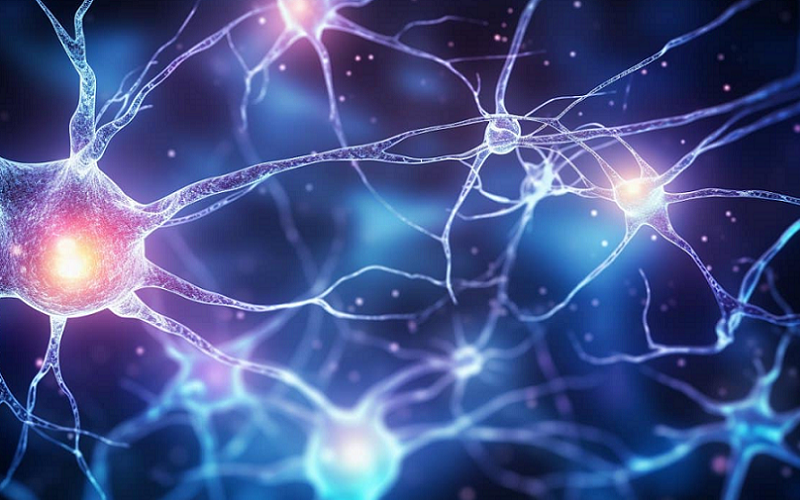
In the quest for optimal cognitive functioning and brain health, the world of nootropics offers a myriad of options. Among these, L-Theanine, a unique amino acid predominantly found in green tea, stands out for its potential neuroprotective benefits. This compound, celebrated for its calming effects without sedation, has piqued the interest of scientists and health enthusiasts alike. Here we look at the role of L-Theanine in neuroprotection and brain health, exploring its chemical composition, how it interacts with brain function, and the various ways it contributes to cognitive enhancement and protection against neurodegenerative diseases.
Contents
Understanding L-Theanine
Before getting into the specific role of L-Theanine in neuroprotection and brain health, it’s crucial to understand what L-Theanine is and how it functions within the body.
Chemical Composition and Sources of L-Theanine
L-Theanine, or γ-glutamylethylamide, is a unique amino acid not commonly found in the standard human diet. It’s primarily present in tea leaves, particularly in green tea, and to a lesser extent in black and white teas. Unlike most amino acids, L-Theanine does not build proteins but rather plays a specialized role in neurochemistry. Its structure is similar to that of glutamate, a critical neurotransmitter in the brain. This similarity allows L-Theanine to cross the blood-brain barrier and exert its effects directly on brain cells.
L-Theanine Mechanism of Action in the Brain
Once L-Theanine enters the brain, its mechanism of action is multifaceted. Primarily, it influences the levels of certain neurotransmitters – the chemicals that brain cells use to communicate. L-Theanine has been found to increase levels of GABA (gamma-aminobutyric acid), serotonin, and dopamine. These neurotransmitters are known for their roles in mood regulation, relaxation, and alertness.
By modulating these chemicals, L-Theanine can induce a state of calm alertness, reducing stress without causing drowsiness. Additionally, it antagonizes the excitatory effects of glutamate by binding to its receptors, which can help in preventing over-excitation of neurons, a phenomenon often linked to neurodegenerative diseases.
Absorption and Metabolism of L-Theanine
The absorption and metabolism of L-Theanine are efficient and quick. After ingestion, typically in the form of tea or as a supplement, L-Theanine is absorbed through the small intestine and crosses into the bloodstream. Its ability to cross the blood-brain barrier is a key aspect of its effectiveness. Once in the brain, L-Theanine is metabolized primarily in the liver and kidneys and is eventually excreted in the urine. Its effects can be noticed as soon as 30 minutes after consumption and can last several hours, making it a quick-acting and easily metabolized compound [1].

L-Theanine and Neuroprotection
Having explored the fundamentals of L-Theanine, we now turn our attention to its role in neuroprotection. Neuroprotection refers to the mechanisms and strategies used to protect the brain’s neurons from damage and degeneration. L-Theanine’s unique properties suggest it may play a significant role in this regard, offering potential benefits against a variety of neurological conditions.
Antioxidant Properties of L-Theanine
One of the key features of L-Theanine contributing to its neuroprotective abilities is its antioxidant activity. Oxidative stress, caused by an imbalance between free radicals and antioxidants in the body, is a major factor in neuronal damage and the aging process of the brain. L-Theanine helps combat this by neutralizing harmful free radicals and reducing oxidative stress. This antioxidant capacity not only helps protect neurons from damage but also supports overall brain health, potentially slowing down the aging process of the brain and reducing the risk of neurodegenerative diseases.
L-Theanine Effects on Neurotransmitters
L-Theanine’s influence on neurotransmitters goes beyond just promoting relaxation and alertness. By modulating neurotransmitter levels, L-Theanine can protect neurons from overstimulation, a condition that can lead to neuronal damage and death, known as excitotoxicity. Excitotoxicity is implicated in various neurodegenerative disorders, including Alzheimer’s and Parkinson’s diseases [2].
By increasing GABA levels, L-Theanine helps inhibit overactive neuronal firing, providing a protective effect against this form of damage. Furthermore, the modulation of serotonin and dopamine by L-Theanine contributes to improved mood and cognitive function, which are essential components of brain health.
L-Theanine Protects Against Neurodegenerative Diseases
The potential of L-Theanine to offer protection against neurodegenerative diseases is an area of growing interest. Neurodegenerative diseases, such as Alzheimer’s and Parkinson’s, are characterized by the progressive loss of structure or function of neurons, including their death.
Studies suggest that L-Theanine may help prevent or slow the progression of these diseases through its neuroprotective actions. The compound’s ability to reduce oxidative stress, modulate neurotransmitter activity, and possibly even inhibit the build-up of harmful proteins in the brain points to its potential as a supportive supplement in managing or preventing these debilitating conditions.

L-Theanine’s Role in Enhancing Brain Health
Beyond its neuroprotective effects, L-Theanine plays a vital role in enhancing overall brain health.
L-Theanine Improves Cognitive Function
Cognitive function, encompassing aspects like memory, attention, and problem-solving, is crucial for daily activities and overall quality of life. L-Theanine has been shown to have a positive impact on these cognitive abilities. Studies indicate that L-Theanine can enhance focus, attention, and working memory. This is thought to be partly due to its ability to increase alpha brain wave activity, which is associated with a state of relaxed alertness [3].
By promoting this state, L-Theanine aids in maintaining focus while avoiding the overstimulation that can lead to stress and burnout. Additionally, its influence on neurotransmitters like dopamine and serotonin further supports cognitive function by improving mood and mental clarity.
Stress Reduction and Mental Clarity from L-Theanine
Stress management is a critical component of brain health, as chronic stress can lead to a variety of cognitive and mental health issues. L-Theanine’s ability to increase GABA levels in the brain plays a significant role in its stress-reducing properties. GABA is an inhibitory neurotransmitter that counteracts the effects of stress hormones like cortisol. By promoting relaxation without drowsiness, L-Theanine helps maintain mental clarity and resilience against stress. This calming effect is particularly beneficial in today’s fast-paced world, where cognitive overload and stress are common.
L-Theanine Enhances Sleep Quality
Good quality sleep is essential for brain health, affecting everything from cognitive function to emotional regulation. L-Theanine can contribute positively to sleep quality by promoting relaxation and reducing anxiety, which can often interfere with sleep. While L-Theanine does not act as a sedative, its ability to induce a state of calm can make it easier to fall asleep and can improve the overall quality of sleep. This is especially beneficial for individuals who struggle with sleep disturbances due to stress or anxiety [4].
Scientific Research and Studies Involving L-Theanine and Brain Health
The potential benefits of L-Theanine have been the subject of numerous scientific studies and research projects. This section examines the key findings from this body of work, providing an evidence-based understanding of L-Theanine’s effects on the brain.
Overview of Key Studies Involving L-Theanine and Brain Health
Research on L-Theanine has spanned various aspects of brain health, from its neuroprotective properties to its impact on cognitive functions and mental well-being. Notable studies include those examining its effects on brain wave activity, particularly the increase in alpha waves, which are associated with relaxed alertness. Other significant research has focused on L-Theanine’s role in reducing symptoms of anxiety and its potential to improve sleep quality.
In terms of neuroprotection, studies have investigated how L-Theanine’s antioxidant properties help in combating oxidative stress in the brain. There’s also growing interest in its potential to slow the progression of neurodegenerative diseases like Alzheimer’s and Parkinson’s, with research exploring how it may inhibit certain pathways involved in these diseases.
Interpretation of Findings of Studies Involving L-Theanine and Brain Health
The findings from these studies generally support the idea that L-Theanine can be beneficial for brain health. The increase in alpha brain waves suggests a state of relaxation without drowsiness, beneficial for mental focus and stress reduction. The potential for neuroprotection, particularly in the context of neurodegenerative diseases, is an exciting area of research, although more studies are needed to fully understand these effects [5].
It’s important to interpret these findings with an understanding of the limitations of the studies. Many studies on L-Theanine have been relatively small or have used animal models, meaning the results may not always directly translate to human experiences. Additionally, L-Theanine’s effects can vary depending on individual factors like metabolism, overall health, and concurrent use of other substances.
L-Theanine Limitations and Areas for Further Research
While the existing research on L-Theanine is promising, there are limitations that need to be addressed in future studies. More large-scale, long-term human studies are needed to confirm the benefits of L-Theanine and understand its long-term effects. Research exploring the impact of different dosages and forms of L-Theanine, as well as studies on diverse populations, will also be valuable.
Further investigation into how L-Theanine interacts with other nootropics and medications is crucial for understanding its role in broader therapeutic contexts. Additionally, more research is needed to explore its potential in treating specific conditions, such as different types of anxiety disorders or specific stages of neurodegenerative diseases.
References
[1] Neuroprotective attributes of L-theanine, a bioactive amino acid of tea
[2] The neuropharmacology of L-theanine(N-ethyl-L-glutamine): a possible neuroprotective and cognitive enhancing agent
[3] L-Theanine Prevents Long-Term Affective and Cognitive Side Effects
[4] The neuroprotective effect of L-Theanine
[5] L-theanine Administration Results in Neuroprotection

